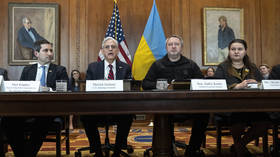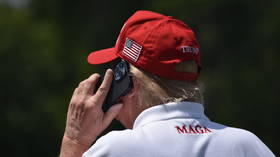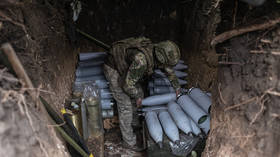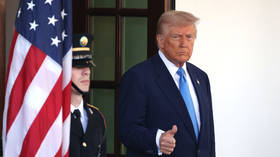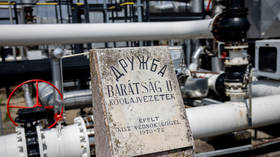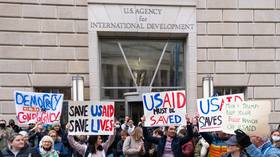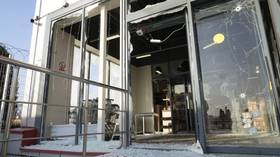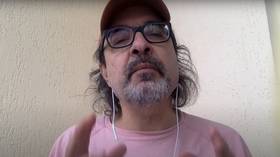EU urged to track down Russian assets
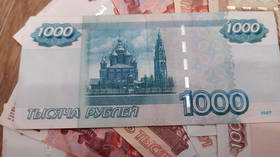
The EU’s legal service has legal justification for confiscating Russian assets, frozen under the bloc’s Ukraine sanctions, but to put Brussels' plan into action the funds must be found and tallied first, Bloomberg reported on Thursday.
“We are exploring with our partners how to use Russia’s public assets to the benefit of Ukraine,” European Commission President Ursula von der Leyen said at a news conference on Thursday, as Ukrainian President Vladimir Zelensky came to visit.
According to a memo circulating in Brussels, the lawyers suggest the EU consider requiring banks in the bloc to report on the value of the frozen Russian assets. Once the EU has that information, its laws allow it to confiscate the assets and “invest” them to benefit Kiev’s “reconstruction” efforts.
The “financial suitability” of the investment scheme depends on the actual amount held by the bloc’s banks, the lawyers said. So far, EU members have reported about €33.8 billion ($36.4 billion) in Russian central bank assets, but “that figure is still being assessed,” according to Bloomberg. Estimates citing numbers as high as $258 billion are based on the 2022 report by the Bank of Russia on its gold and foreign exchange holdings.
The most recent estimates from the Bank of Russia, released at the end of January, mentioned $80.8 billion in frozen assets in all Western financial institutions, with 20% belonging to retail investors rather than the state.
Washington has led the efforts to confiscate frozen funds and add them to over $120 billion the US and its allies have sent to Kiev over the past year. Last week, the US announced it was giving Ukraine $5.4 million seized from Russian businessman Konstantin Malofeyev, whom they accused of “having acted or purported to act for or on behalf of, directly or indirectly” the Russian government.
Typically the Western governments freeze the assets of sanctioned countries in their banks, while continuing to charge interest and other fees. One of the biggest EU clearinghouses, Euroclear, reported a 162% increase in 2022 earnings on Wednesday, revealing that it profited to the tune of €597 million ($641 million) from handling frozen Russian assets.
The publicly promoted plans to expropriate the frozen funds and send them to Ukraine have caused concern among some financial analysts in the West, who pointed out that this would turn sanctions from a policy tool to influence behavior into a purely punitive practice.
